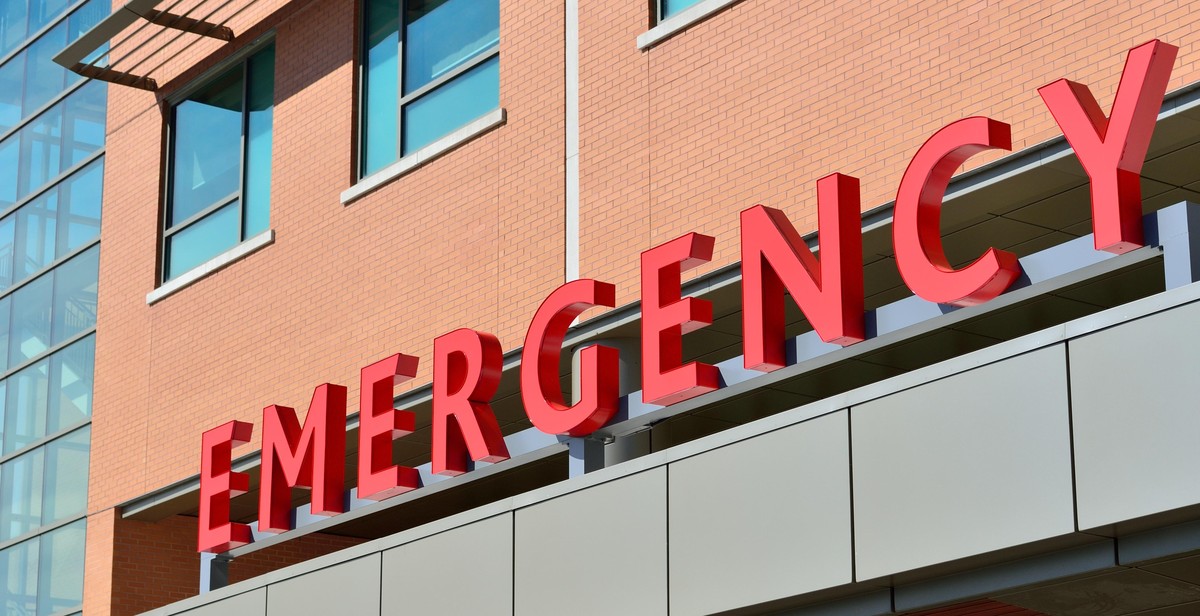How to Establish Effective Communication with Hospital Patients and Families
Effective communication is crucial in healthcare, particularly when it comes to patients and their families. Communication breakdowns can lead to misunderstandings, frustration, and even medical errors. On the other hand, effective communication can improve patient outcomes, increase satisfaction, and build trust between healthcare providers and patients.
Establishing effective communication with hospital patients and families requires a combination of skills, including empathy, active listening, and clear and concise language. Healthcare providers must also be able to adapt their communication style to meet the needs of individual patients and families, taking into account factors such as culture, language, and health literacy.
The Importance of Effective Communication
Effective communication is essential for building trust and establishing a positive relationship between healthcare providers and patients. When patients feel that their healthcare providers are listening to them and taking their concerns seriously, they are more likely to be engaged in their care and follow treatment plans. Effective communication can also help to reduce anxiety and improve satisfaction with care.
Tips for Effective Communication
- Use plain language and avoid medical jargon
- Be present and attentive during conversations
- Ask open-ended questions to encourage patients to share their concerns
- Use visual aids and other tools to enhance understanding
- Be aware of cultural and linguistic differences
By following these tips and prioritizing effective communication, healthcare providers can improve patient outcomes, increase satisfaction, and build trust with patients and their families.

The Importance of Effective Communication in Hospitals
Effective communication is crucial in the healthcare industry, particularly in hospitals. It refers to the ability of healthcare professionals to convey information in a clear and concise manner to patients and their families. Effective communication is vital for various reasons, including:
Improved Patient Outcomes
Effective communication between healthcare professionals and patients can contribute to improved patient outcomes. When patients understand their conditions, treatment options, and medication regimens, they are more likely to adhere to their treatment plans and achieve better health outcomes. Furthermore, effective communication can help healthcare professionals identify potential issues and address them promptly, reducing the risk of complications and readmissions.
Reduced Medical Errors
Effective communication can also help reduce medical errors. Miscommunication can lead to medication errors, incorrect diagnoses, and other adverse events that can harm patients. By communicating effectively with patients and their families, healthcare professionals can ensure that they understand the patient’s medical history, current condition, and treatment plan. This can help prevent errors and ensure that patients receive the appropriate care.
Increased Patient Satisfaction
Effective communication can also contribute to increased patient satisfaction. When patients feel that their healthcare providers are listening to their concerns and addressing their needs, they are more likely to be satisfied with their care. Patients who are satisfied with their care are more likely to comply with their treatment plans and recommend the hospital to others.
In conclusion, effective communication is crucial in hospitals. It can contribute to improved patient outcomes, reduced medical errors, and increased patient satisfaction. Healthcare professionals should prioritize effective communication with patients and their families to ensure that they receive the best possible care.

Barriers to Effective Communication in Hospitals
Effective communication is essential in healthcare settings, particularly in hospitals where patients and families are dealing with critical health issues. However, communication barriers can hinder effective communication, leading to misunderstandings, medical errors, and poor health outcomes. Here are some of the most common barriers to effective communication in hospitals:
Language and Cultural Differences
Language and cultural differences can create significant communication barriers in hospitals. Patients and families who do not speak the same language as healthcare providers may struggle to understand medical jargon, instructions, and procedures. Similarly, cultural differences can affect the way patients and families perceive and respond to healthcare information. For instance, some cultures may prioritize family involvement in healthcare decisions, while others may prioritize individual autonomy. Healthcare providers need to be aware of these differences and tailor their communication to meet the needs of diverse patients and families.
Health Literacy
Health literacy refers to a person’s ability to access, understand, and use healthcare information to make informed decisions. Low health literacy is a significant barrier to effective communication in hospitals. Patients and families with low health literacy may struggle to understand medical terminology, follow instructions, and navigate the healthcare system. Healthcare providers need to use plain language, visual aids, and other communication strategies to ensure that patients and families with low health literacy understand their health issues and treatment options.
Emotional Distress
Patients and families dealing with critical health issues are often under emotional distress, which can affect their ability to communicate effectively with healthcare providers. Patients may be in pain, anxious, or depressed, making it challenging to process and retain healthcare information. Similarly, families may be dealing with grief, guilt, or anger, which can affect their communication with healthcare providers. Healthcare providers need to be empathetic and patient with patients and families under emotional distress, providing them with emotional support and communication strategies that can help them cope with their health issues.
By understanding and addressing these communication barriers, healthcare providers can establish effective communication with patients and families, leading to better health outcomes and patient satisfaction.

Strategies for Effective Communication with Hospital Patients and Families
Effective communication is essential in establishing trust and building a strong relationship with hospital patients and their families. Here are some strategies for healthcare professionals to improve their communication skills:
Active Listening
Active listening involves paying attention to the patient’s verbal and non-verbal cues and responding appropriately. Healthcare professionals should avoid interrupting the patient and allow them to express their concerns fully. They should also ask open-ended questions to encourage the patient to share more information and clarify any misunderstandings.
Clear and Concise Language
Healthcare professionals should use clear and concise language when communicating with patients and their families. They should avoid using medical jargon and explain any medical terms in simple language that the patient can understand. They should also use visual aids such as diagrams or videos to help patients understand their medical conditions and treatment options better.
Empathy and Compassion
Empathy and compassion are essential in establishing a caring and supportive relationship with patients and their families. Healthcare professionals should show empathy by acknowledging the patient’s feelings and concerns and offering emotional support. They should also demonstrate compassion by showing kindness, respect, and understanding towards the patient and their family members.
Collaborative Decision-Making
Collaborative decision-making involves working with the patient and their family members to develop a treatment plan that meets their medical needs and personal preferences. Healthcare professionals should discuss the treatment options and their potential benefits and risks with the patient and their family members. They should also take into account the patient’s cultural and religious beliefs and values when developing the treatment plan.
In conclusion, effective communication is vital in establishing a strong relationship with hospital patients and their families. Healthcare professionals should use active listening, clear and concise language, empathy and compassion, and collaborative decision-making to improve their communication skills and provide quality care to their patients.

Technology and Communication in Hospitals
Advancements in technology have made it easier for healthcare providers to communicate with their patients and families. The use of electronic medical records (EMRs) has revolutionized the way medical information is stored, accessed, and shared. EMRs provide a centralized location for patient data, allowing healthcare providers to easily track and monitor a patient’s medical history, medications, lab results, and treatment plans.
Telemedicine is another technology that is changing the way healthcare is delivered. Telemedicine allows healthcare providers to communicate with patients and families remotely, using video conferencing and other digital communication tools. This is particularly useful for patients who live in remote areas or have mobility issues, as it allows them to receive medical care without having to travel long distances.
Patient Portals
Patient portals are secure online platforms that allow patients and families to access their medical records, communicate with healthcare providers, and schedule appointments. Patient portals provide a convenient way for patients to stay informed about their healthcare, and they also allow healthcare providers to communicate important information to patients in a timely manner.
- Patients can access their medical records anytime, anywhere, making it easier for them to keep track of their health and wellness.
- Patients can communicate with their healthcare providers through secure messaging, eliminating the need for phone calls and in-person visits.
- Patients can schedule appointments and receive reminders, reducing the likelihood of missed appointments and improving patient outcomes.
Benefits of Technology in Communication
The use of technology in communication has numerous benefits for both patients and healthcare providers. Some of the benefits include:
- Improved access to medical information
- Increased efficiency and productivity
- Improved patient outcomes and satisfaction
- Reduced healthcare costs
| Technology | Benefits |
|---|---|
| Electronic Medical Records | Centralized location for patient data, easy tracking of medical history, medications, lab results, and treatment plans |
| Telemedicine | Remote communication with patients and families, particularly useful for patients in remote areas or with mobility issues |
| Patient Portals | Secure online platform for patients to access medical records, communicate with healthcare providers, and schedule appointments |

Conclusion
Effective communication is an essential component of quality healthcare. It is crucial for healthcare providers to establish effective communication with their patients and their families to ensure that they receive the necessary care and support. Effective communication improves patient outcomes, reduces medical errors, and enhances patient satisfaction.
Healthcare providers must understand that effective communication is a two-way process that requires active listening, empathy, and respect. They must also be aware of the different communication barriers that may hinder effective communication and take appropriate measures to overcome them.
Using patient-centered communication strategies such as teach-back, open-ended questions, and active listening can help healthcare providers establish effective communication with their patients and their families. It is also essential to provide patients and their families with the necessary information about their condition, treatment options, and expected outcomes.
Effective communication is especially critical when dealing with patients and their families who are experiencing emotional distress. Healthcare providers must be compassionate and empathetic in their communication and provide emotional support to their patients and their families.
In conclusion, effective communication is a vital aspect of healthcare that can improve patient outcomes, reduce medical errors, and enhance patient satisfaction. Healthcare providers must strive to establish effective communication with their patients and their families to ensure that they receive the best possible care and support.
